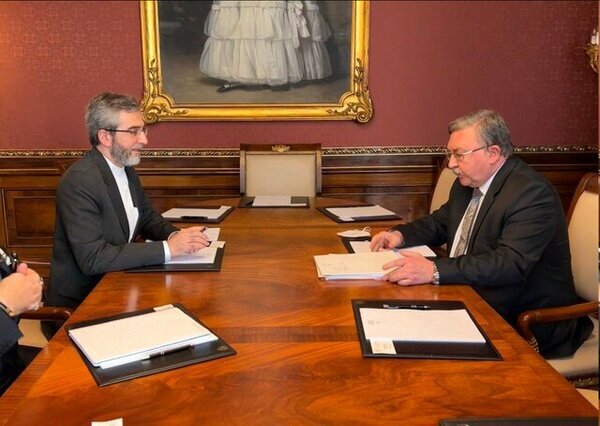Iran standing firm on logical red lines

TEHRAN — As the talks were resumed on Monday, reports from Vienna indicate that the United States and the European troika (France, Britain, and Germany) are not willing to show real flexibility.
In 2015, Iran, the U.S., the European troika, Russia, and China signed an agreement that promised a great sanction relief for the Islamic Republic. Nevertheless, with the U.S. and the three European countries throwing stones in Iran’s way, the agreement, endorsed by the UN Security Council, failed to benefit Iran economically.
With the unilateral withdrawal of the United States from the agreement in May 2018, Iran practically lost the minimum economic privileges it already had. The EU’s inaction added fuel to the fire. It cooperated by bowing to Donald Trump’s “maximum pressure” campaign against Iran.
Since the beginning of the seventh round of the negotiations in Vienna on November 29, the Western media tried to portray Iran as the party that is reluctant to revive the 2015 nuclear deal. When the Iranian negotiating team presented practical initiatives, the Wall Street Journal and Reuters used every measure to say that Iran’s demands are maximalist, but they failed to provide evidence to their claims.
The Vienna talks have now reached a critical stage. Reports from Vienna indicate that the talks are at a “make or break” point. On November 29, Iran’s top negotiator Ali Bagheri Kani said, “Nothing is agreed until everything is agreed.” The phrase indicated that Iran is seriously pursuing reviving the Joint Comprehensive Plan of Action (JCPOA) while seriously upholding the rights of the Iranian people.
Iranian officials have repeatedly stated that the negotiating team clearly considers Tehran’s red lines. As negotiation is principally based on a “give and take”, Iran has shown the necessary flexibility needed to revive the internationally agreed deal, but the Western sides are not showing the necessary flexibility.
When it comes to action, the European troika, also called E3, are not even willing to back down from their meager demands. However, they expect Iran to back down from its critical red lines. One thing is now certain.
Even in case, the talks fail, Tehran will not back down from its logical red lines.
Iranian negotiators believe that to finish the job, there are certain decisions that the Western parties need to take first.
The positions of the Iranian negotiating team have been based on clear principles from the beginning, and taking breaks will not change these positions.
The West needs to make drastic political decisions that will definitively shape the future of U.S. involvement in the plan.
Ali Bagheri Kani left Tehran for Vienna on Sunday night.
Before his departure to Vienna on Sunday night, Bagheri Kani participated in a key meeting of Iran’s Supreme National Security Council arranged to take stock of the state of the talks. The council underlined the need to meet Iran’s legal and logical demands which are part of the country’s red lines, according to Nour News, a website close to the Council.
During the meeting, it was underlined that the remaining issues, which have put the negotiations on the verge of “agreement or deadlock,” should be swiftly settled. Accepting any agreement by Iran depends on the settlement of these issues, Nour News reported.
Agreement in Vienna can be reached, if and only if the Westerners are willing to demonstrate “true” flexibility.
Leave a Comment